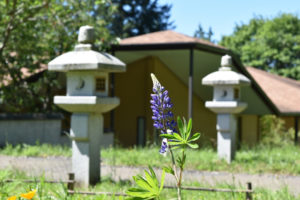Ethical Guidelines & Conflict Process
Sangha Harmony Committee Conflict Resolution Statement and Process Guidelines for Behavior and Conflict Resolution
Zen Community of Oregon (ZCO) is a community established to provide the teachings and practice of Zen Buddhism. Those who are members of this community have a responsibility to maintain and support a healthy environment for this practice. The teachers and Board of Directors of ZCO endorse the guidelines for behavior and steps of conflict resolution contained in this document. The ZCO Board has also created the Sangha Harmony Committee (SHC) to facilitate communication between members, and to address concerns about unethical behavior in the community.
Guidelines for Behavior
The following guidelines are derived from the five Buddhist precepts for ethical living. These guidelines are meant to establish reasonable expectations and limitations for behavior and yet respect the need for flexibility in our lives.
1. We undertake the precept of refraining from killing.
We agree not to engage in killing or aggressive violence. In undertaking this precept, we acknowledge the interconnection of all beings and our respect for all life. We agree to continually refine our understanding of not killing and nonharming in all our actions.
2. We undertake the precept of refraining from stealing.
We agree not to take that which does not belong to us and to respect the belongings of others. We agree to be honest in our dealings with money and not to misappropriate or misuse money committed to the dharma and sangha. We agree to bring consciousness to the gifts of the earth’s resources and to endeavor to use them in a respectful and ecologically sustainable manner.
3. We undertake the precept of refraining from false speech.
We agree to speak in a way that is honest, beneficial, kind, and considerate. We will endeavor to refrain from gossip in our community. We agree to cultivate loving-kindness and self-awareness as the basis of our speech.
4. We undertake the precept of refraining from sexual misconduct.
We agree to avoid creating harm through sexuality and to avoid sexual exploitation. Those with vows of celibacy will live according to their vows. Those married will honor their vows and refrain from adultery. All those in a teaching role agree not to exploit their authority in order to assume a sexual relationship with a student.
5. We undertake the precept of not misusing drugs or alcohol.
It is clear that substance abuse is the cause of tremendous suffering. We agree that there should be no use of intoxicants during events or while on the premises of Great Vow Zen Monastery or Heart of Wisdom Zen Temple. We agree not to abuse or misuse intoxicants at any time. We agree that if anyone in a teaching role has a drug or alcohol problem, it should be immediately addressed by the community.
It is our sincere intention to continually realign our lives in accord with the precepts. Persons who encounter inappropriate conduct from any member of the ZCO Sangha (or themselves practice such conduct) should be aware that these actions violate the spirit and practice of right conduct and seriously undermine the harmony of the Sangha. In the event of a concern arising in the Sangha, either by complaint or perception, the Sangha Harmony Committee (SHC), appointed by the ZCO Board of Directors, recommends the following sequence of actions to be taken.






